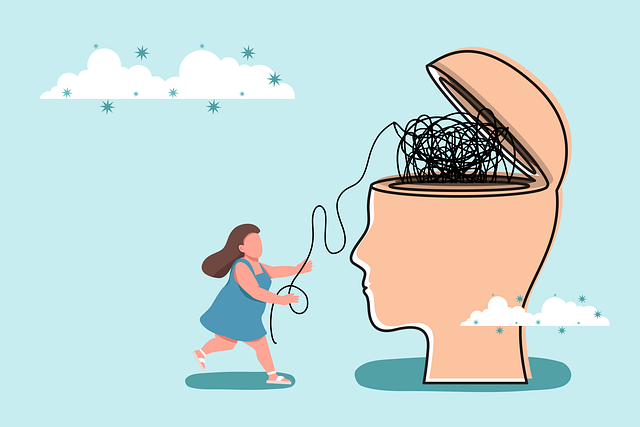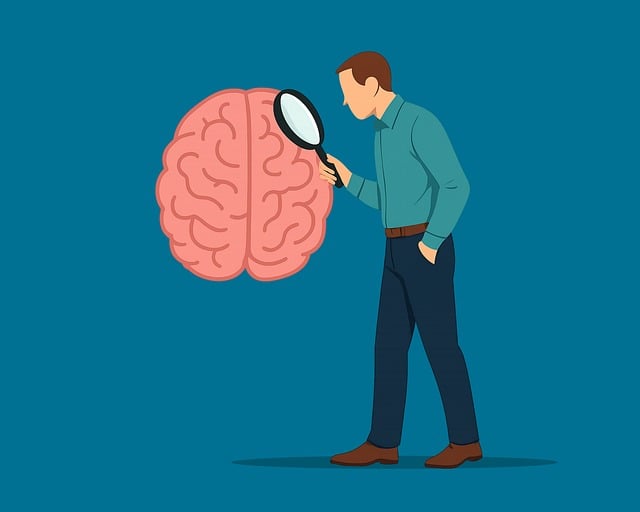Navigating mental health for adolescent teens requires specialized therapy for adolescent teens stress management due to unique young mind symptoms. Mental health professionals use tailored tools like Cognitive-Behavioral Therapy (CBT) to address issues like depression and anxiety, fostering resilience through coping strategies and self-care practices. Supportive environments encourage open conversations about mental health, empowering teens with effective skills for navigating academic pressure, peer dynamics, and adulthood transitions. Professional guidance ensures accessible, comprehensive care through community outreach and risk management planning.
“Uncovering Pathways to Mental Wellness: A Comprehensive Guide for Adolescent Teens. Mental illness diagnosis can be a complex journey, but with the right tools, adolescents can navigate their path to recovery. This article explores crucial aspects of understanding mental health diagnoses specific to teens, delving into effective therapy methods for stress management. We offer practical strategies for navigating treatment options and emphasize fostering resilience as a key to long-term wellbeing. By providing evidence-based insights, we aim to empower young people and their families in this vital process.”
- Understanding Mental Health Diagnoses for Adolescent Teens
- The Role of Therapy in Stress Management for Young People
- Practical Strategies for Navigating Treatment Options
- Fostering Resilience and Coping Skills for Long-Term Wellbeing
Understanding Mental Health Diagnoses for Adolescent Teens

Navigating mental health diagnoses for adolescent teens can be a complex and daunting task. It’s crucial to understand that young minds face unique challenges, often presenting different symptoms compared to adults. Mental health professionals use specialized tools and criteria to accurately diagnose conditions like depression, anxiety, or even more severe disorders. Early identification is key; it enables adolescents to access tailored therapy for adolescent teens, which can include individual counseling, group therapy, or family-focused interventions.
Self-care practices play a pivotal role in managing stress and promoting mental well-being during these formative years. Encouraging open conversations about Mental Health Awareness helps break down stigma. Additionally, teaching teens effective coping strategies, such as mindfulness techniques and healthy habits, can serve as powerful tools for Depression Prevention. By fostering an environment of support, teens are empowered to actively participate in their journey towards better mental health.
The Role of Therapy in Stress Management for Young People

For young people struggling with mental health issues, therapy plays a pivotal role in navigating stress and fostering resilience. Adolescent teens often face unique challenges, such as academic pressures, peer relationships, and the transition to adulthood, which can significantly contribute to heightened stress levels. Therapy provides a safe space for them to explore these stressors and develop effective coping mechanisms. Through evidence-based practices like cognitive-behavioral therapy (CBT), adolescents learn to identify and challenge negative thought patterns, enabling them to manage stress more adaptively.
Incorporating social skills training and compassion cultivation practices within therapy can further enhance the benefits for young individuals. Social Skills Training helps teens build confidence in interacting with peers, improving their support network and overall well-being. Compassion Cultivation Practices encourage self-acceptance and empathy towards others, promoting positive relationships and reducing social anxiety. By combining these stress reduction methods, therapy becomes a powerful tool to empower adolescents, helping them thrive despite life’s challenges.
Practical Strategies for Navigating Treatment Options

Navigating treatment options for mental illness can be a daunting task, especially for adolescents and teens facing stress and its related challenges. A practical strategy involves seeking professional guidance from qualified therapists who specialize in youth mental health. Therapy sessions tailored to teenage clients’ needs can significantly improve their ability to manage stress and cope with life’s demands. Cognitive-behavioral therapy (CBT), a widely recognized approach, teaches teens effective coping mechanisms by identifying and modifying negative thought patterns and behaviors.
Additionally, integrating community outreach programs and risk management planning for mental health professionals can further enhance treatment accessibility and outcomes. Such initiatives often involve advocacy groups and policy analysis to ensure that adolescents receive the necessary support. By combining therapeutic interventions with a robust mental health policy framework, teens struggling with stress and related issues can access comprehensive care that addresses their unique challenges.
Fostering Resilience and Coping Skills for Long-Term Wellbeing

Fostering resilience is a cornerstone of navigating mental illness and ensuring long-term wellbeing for adolescent teens. Through therapy sessions that focus on stress management techniques, young individuals can learn to cope with challenges more effectively. This involves developing robust emotional regulation skills, enhancing their ability to navigate difficult situations without resorting to unhealthy coping mechanisms. By integrating these strategies into daily life, adolescents gain a sense of control and empowerment, reducing the impact of mental health struggles.
In addition to therapy for adolescent teens, Mental Wellness Podcast Series Production can offer valuable resources for mood management. These podcasts often provide practical tips and insights on navigating various aspects of mental wellness, from trauma support services to strategies for improving overall mental health. Engaging with such content encourages a proactive approach to mental care, fostering resilience and promoting self-care practices that contribute to sustained wellbeing.
Mental illness diagnosis and treatment can be a complex journey, especially for adolescent teens. By understanding mental health diagnoses, utilizing therapy for stress management, navigating practical treatment options, and fostering resilience, young people can overcome challenges and achieve long-term wellbeing. These strategies empower teens to take control of their mental health and lead fulfilling lives.












